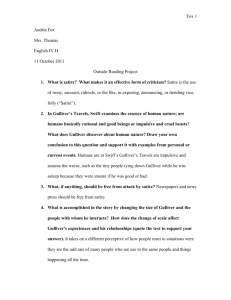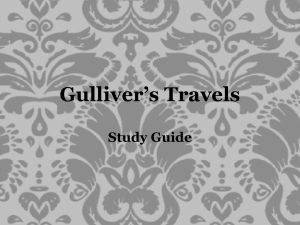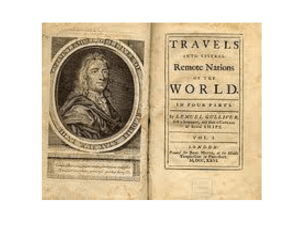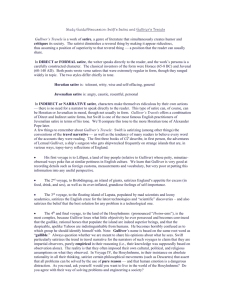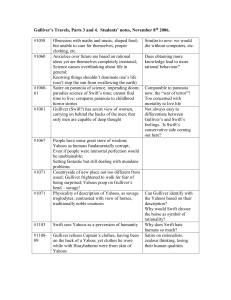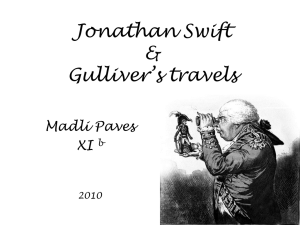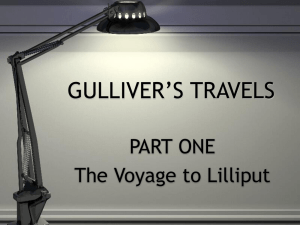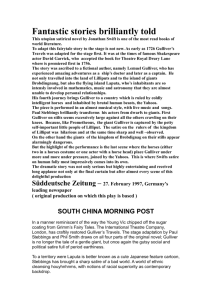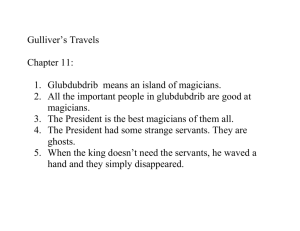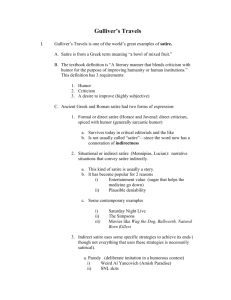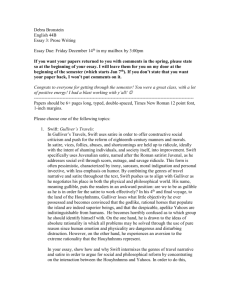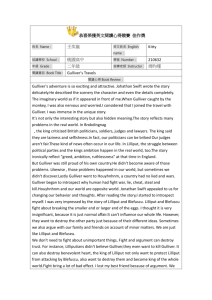gulliver travel.doc
advertisement
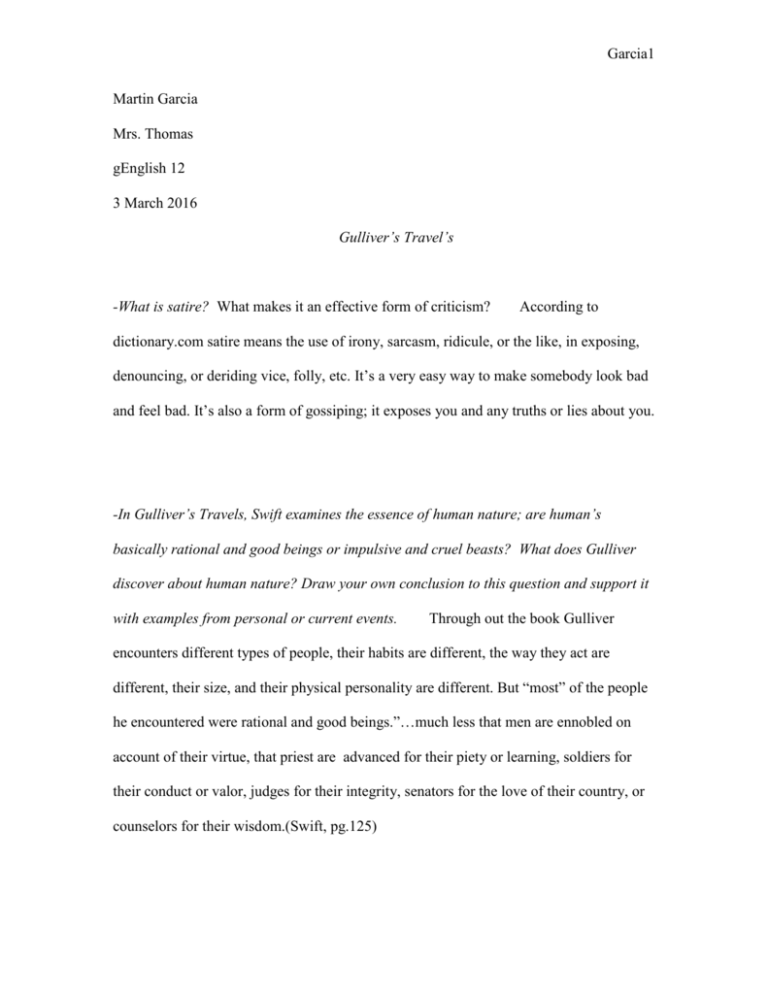
Garcia1 Martin Garcia Mrs. Thomas gEnglish 12 3 March 2016 Gulliver’s Travel’s -What is satire? What makes it an effective form of criticism? According to dictionary.com satire means the use of irony, sarcasm, ridicule, or the like, in exposing, denouncing, or deriding vice, folly, etc. It’s a very easy way to make somebody look bad and feel bad. It’s also a form of gossiping; it exposes you and any truths or lies about you. -In Gulliver’s Travels, Swift examines the essence of human nature; are human’s basically rational and good beings or impulsive and cruel beasts? What does Gulliver discover about human nature? Draw your own conclusion to this question and support it with examples from personal or current events. Through out the book Gulliver encounters different types of people, their habits are different, the way they act are different, their size, and their physical personality are different. But “most” of the people he encountered were rational and good beings.”…much less that men are ennobled on account of their virtue, that priest are advanced for their piety or learning, soldiers for their conduct or valor, judges for their integrity, senators for the love of their country, or counselors for their wisdom.(Swift, pg.125) Garcia1 -What, if anything, should be free from attack by satire? Dictionary.com defines perfect as conforming absolutely to the description or definition of an ideal type. Being perfect means there is nothing wrong with your appearance, personality, physical looks, and smarts. God or Gods should also be free from satire. -What is accomplished in the story by changing the size of Gulliver and the people with whom he interacts? How does the change of scale affect Gulliver’s experiences and his relationships (quote the text to support your answer) He became less harmful to the humans because they were bigger than he was. He also became more like a pet and still was funny to look at. “…the farmer placed me at some distance from him on the table, which was thirty foot high from the floor. I was in a terrible fright, and kept as far as I could fall from the edge, for fear of falling. … expressing the words as loud as I could in English; which made the company laugh so heartily, that I was almost deafened by the noise. (Swift, pg. 80)” -What were Jonathan Swift’s views on science and technology? What are yours? How do they compare? In Laputa, Gulliver was able to experience the different views on science in technology. For example the floating island that governed Balnibarbi, was full Garcia1 of different weapons and technologies that they use to keep power over the people. I think science can be very helpful, if the experiment has the right purpose, but if its made to serve a bad purpose, then science could be very bad. -How does Gulliver’s Travels compare to the short story you read in terms of views on science and technology? He criticizes everything he experienced and seen. And this all happens while traveling to different “tribes” in the world. He was able to view the big picture, from all different points of view. “The Flying Machine”- In the Flying Machine story, a single farmer came up with a structure that helped men to fly into the airs of china. One of the emperor’s servants seen this happen and told the emperor of this. While the servant was impressed of the event that he had seen, the emperor quickly told him to bring the farmer to him. As the farmer quickly hurried to tell him of his invention, the emperor thought of this invention as a threat to the walls of his country. In the old times China was protected by the Great Wall of China, it protected them from invasions from neighboring countries; it was a way to keep uninvited people out. When the emperor seen the farmers invention, he envision that invention getting into the hands of the wrong people and people flying across the wall of china invading his country. His invention threatened the peace and tranquility of china, so the emperor got rid of it. Garcia1 Work cited John, B. (1996). Swift's moral satire in Gulliver'sTtravels. 2011-10-11 SparkNotes Editors. “SparkNote on Gulliver’s Travels.” SparkNotes.com. SparkNotes LLC. 2003. Web. 23 Sept. 2011. 2011-10-11
